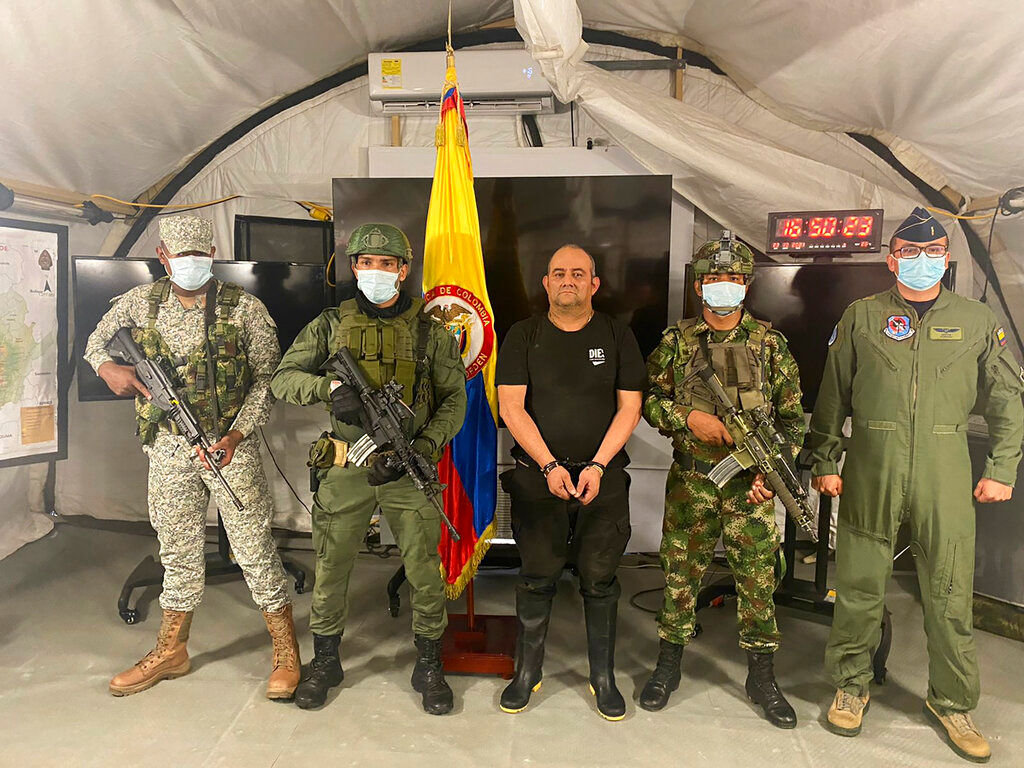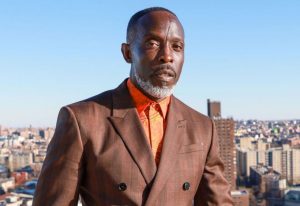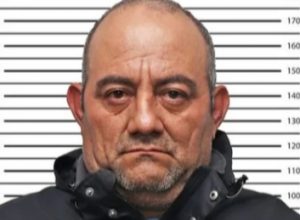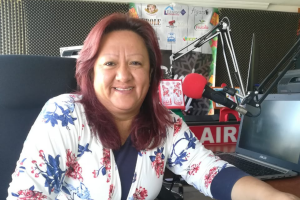Dairo Antonio Usugu, better known by his alias Otoniel, is the alleged head of the feared Gulf Clan. He was captured by the Colombian security forces after being on the run for more than a decade. He corrupted state officials and even aligned himself with combatants on the left and the right.
Usugu is not only the country’s most-wanted drug trafficker but also a rural warlord.
President Iván Duque likened the arrest Saturday of Dairo Antonio Úsuga to the capture three decades ago of Pablo Escobar.
Colombia’s military presented Úsuga to the media in handcuffs and wearing rubber boots preferred by rural farmers.
The Gulf Clan has kept northern Colombia in its clutches and kept the area terrorized to gain control of major cocaine smuggling routes through thick jungles north to Central America and onto the US.
He has been for a long time on the US Drug Enforcement Administration’s most-wanted fugitives list. The agency had been offering a $5 million reward for his capture.
He was first indicted in 2009, in Manhattan federal court, on narcotics charges and for allegedly providing assistance to a far-right paramilitary group designated a terrorist organization by the US government.
Later, he was also indicted in Brooklyn and Miami federal courts where he was accused of importing at least 73 metric tons of cocaine between 2003 and 2014 into the US. through countries including Venezuela, Guatemala, Mexico, Panama, and Honduras.
During his career, he climbed through the ranks of several guerrilla groups. He had recently claimed to lead the Gaitanist Self Defense Forces of Colombia.
The intelligence on his hideout was provided by the US and the UK, prompting more than 500 soldiers to raid the jungle hideout that was protected by eight rings of security.
Úsuga for years flew under the radar of authorities by eschewing the high profile of Colombia’s better-known narcos.
His arrest is something of a boost for the conservative Duque, who law and order rhetoric has been no match for soaring production of cocaine.
Land dedicated to the production of coca — the raw ingredient of cocaine — jumped 16% last year to a record 245,000 hectares.
(With inputs from Associated Press)







